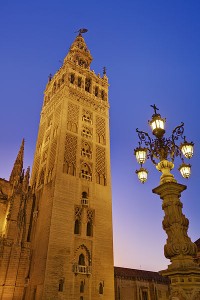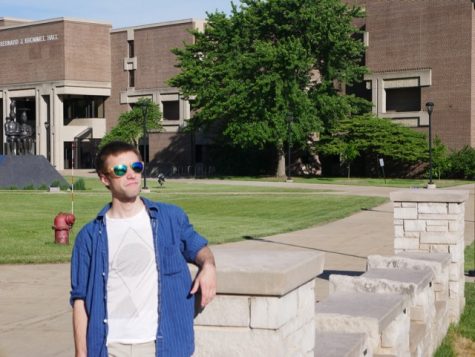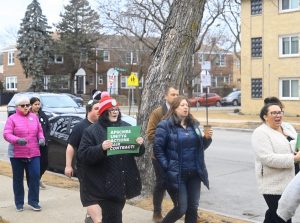Broadening Horizons by Studying Abroad in Spain
October 7, 2014
Education and travel have always come hand-in-hand, and this summer NEIU is offering a truly unique study abroad program to Seville in southern Spain; focused on the country’s rich, multi-cultural Islamic history.
Helmed by Professor of history and Islamic studies Mateo Farzaneh, the trip will be based in Seville; the capital of the autonomous community of Andalusia, which happens to be the center of Flamenco dance and music.
Though the class is focused on Islamic studies and history, students from all majors are welcome to join the trip.
With an estimated cost of $3,616 (excluding tuition), the trip includes lodging in the dormitories of the University of Seville; a weekend trip to Granada, alongside one-day trips to Cordoba and Cadiz, tours of Seville’s Cathedral, Giralda, the Royal Tobacco Factory and the Flamenco Museum—including a Flamenco workshop, tour and show.
Students will also have the opportunity to explore Seville and the rest of Spain at their own leisure.

But above all else, it is the history of Andalusia that is the main draw of this class. “We’re trying to broaden our understanding of Islamic societies, and part of that is studying Islamic Spain,” Farzaneh said. “The Moors or the Muslims ruled over Spain (for) about 780 years.”
Farzaneh continued, “The Moors were the backbone and the foundation for the explorers that would come to discover America, and the age of exploration basically happens on the dime of the wealth that was made in Moorish Spain…by taking this class everyone will benefit from understanding how Spanish and Islam are in some ways commingled together and brought to the New World and how that makes a huge foundation of the Americas in general.”
To study Moorish Spain—a history often obscured, distorted or ignored in American classes on Western Europe—is a great opportunity according to student Luke McCarthy.
“By getting a bunch of, y’know, Chicago natives to be able to visit a European society that has an Islamic history and architecture and investment…they might be able to understand how people aren’t as different as we might have preconceptions and, y’know, common history of different peoples.” McCarthy said.
Another student planning on going is Kaitlin Preusser. She is especially excited about “…staying at this school because it’s really old…It’s been there since like 1500.”
Seville, as a base of operations, was chosen pragmatically Farzaneh explained. “One simple reason is because I have relations with Seville. I’ve lived there and I understand the city…it’s got a lot of historical sites and is centered enough for us to do a lot of things in and around (the country). We can go to Cordoba in a couple of hours. We can get Grenada in four hours. We can go to the birthplace of Flamenco music.”
Andalucía’s history with the Reconquista and the Spanish Inquisition has also created a unique Catholic society in modern Seville.
“One things I would love to do on Friday nights is go to different Churches, because you see very small churches, very poor churches and you see grand churches having mass and all sorts of activities going on, on Friday nights,” Farzaneh said. “Friday nights are a night everybody goes to Mass. There are candles being lit all over the place. Sundays are shot dead…It’s a day of prayer and rest.
Luke McCarthy hopes for the trip to have broad influence for Northeastern’s study abroad program. “Hopefully this allows Dr. Farzaneh to have some opportunities to plan other trips; maybe further East, maybe different origins,” he said. “It’s a vast world, if somehow we could get to Iran—either Tehran or Isfahan, there’s a lot of history in all those places, and I would be excited for any such trip.”
The class is flexible with its monetary deadlines, but Professor Farzaneh encourages students interested in the trip to sign up as soon as possible. The more students who enroll, the less the trip will cost. And though the price tag might be high for some, it’s a small fee for an adventure in Spain.










